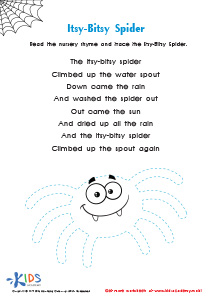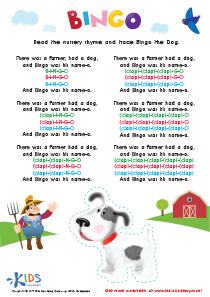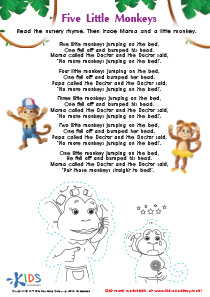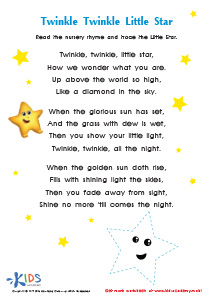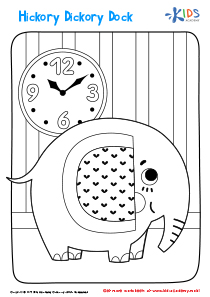Easy Nursery Rhymes Worksheets for Ages 4-8
5 filtered results
-
From - To
Discover our engaging and educational Easy Nursery Rhymes Worksheets, specially designed for children aged 4-8. These fun-filled activities aid in literacy, rhythm recognition, and memory enhancement as kids explore classic nursery rhymes. Perfect for both classroom and home settings, our worksheets feature colorful illustrations, easy-to-read text, and interactive exercises that keep young learners captivated. Foster a love for reading and language development through rhyming, matching, and sequencing tasks. Visit Kids Academy for an extensive collection of printable worksheets that make learning delightful and effortless. Empower your child’s educational journey today with our expertly crafted materials!
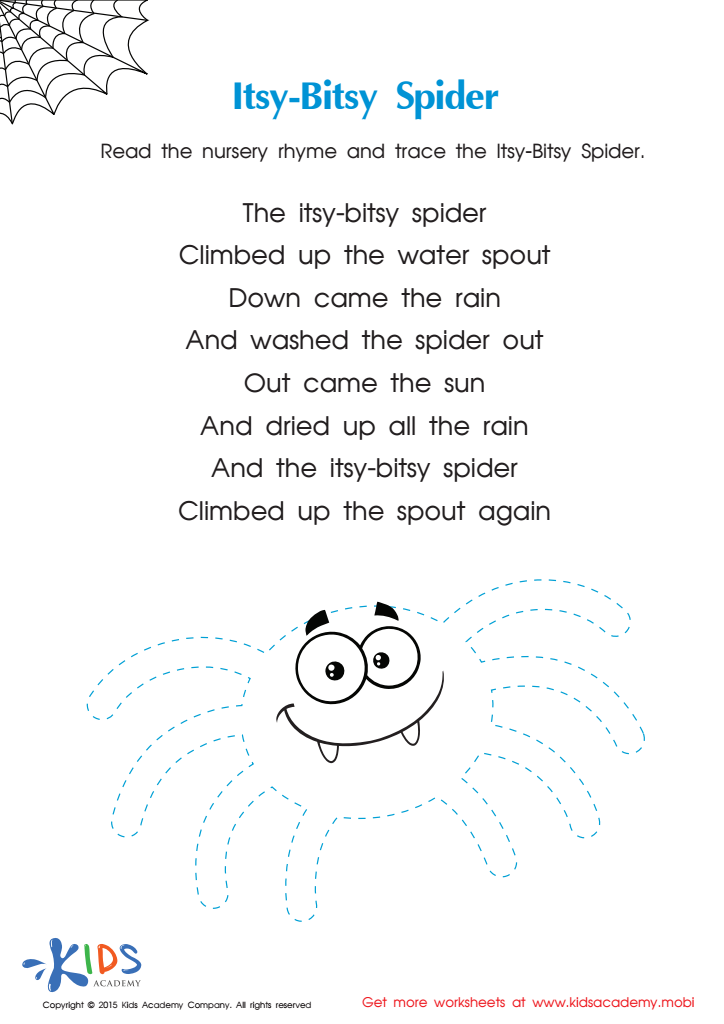

Itsy Bitsy Spider Nursery Rhyme PDF Worksheet


The Five Little Monkeys Nursery Rhyme Worksheet
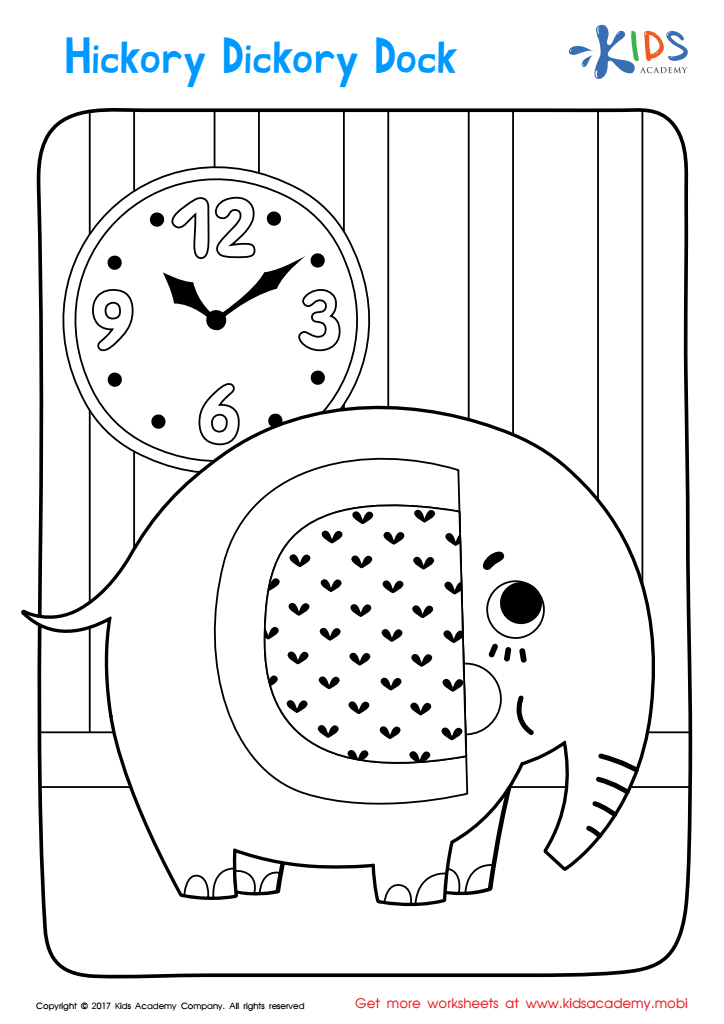

Hickory Dickory Dock Coloring Page
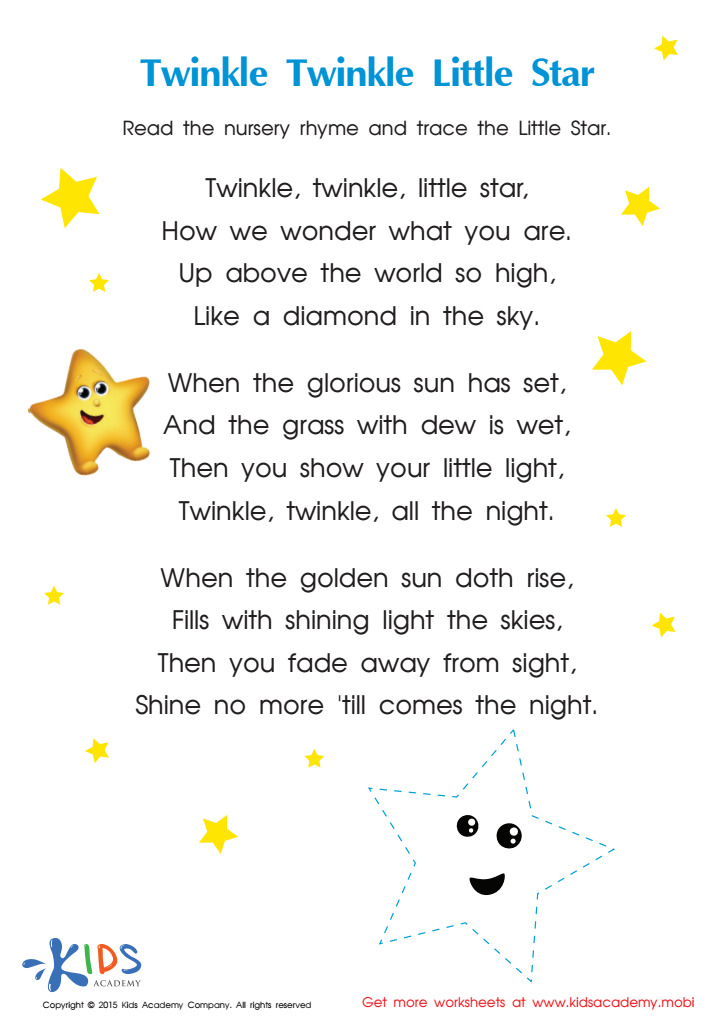

Nursery Rhymes: Twinkle Little Star Worksheet
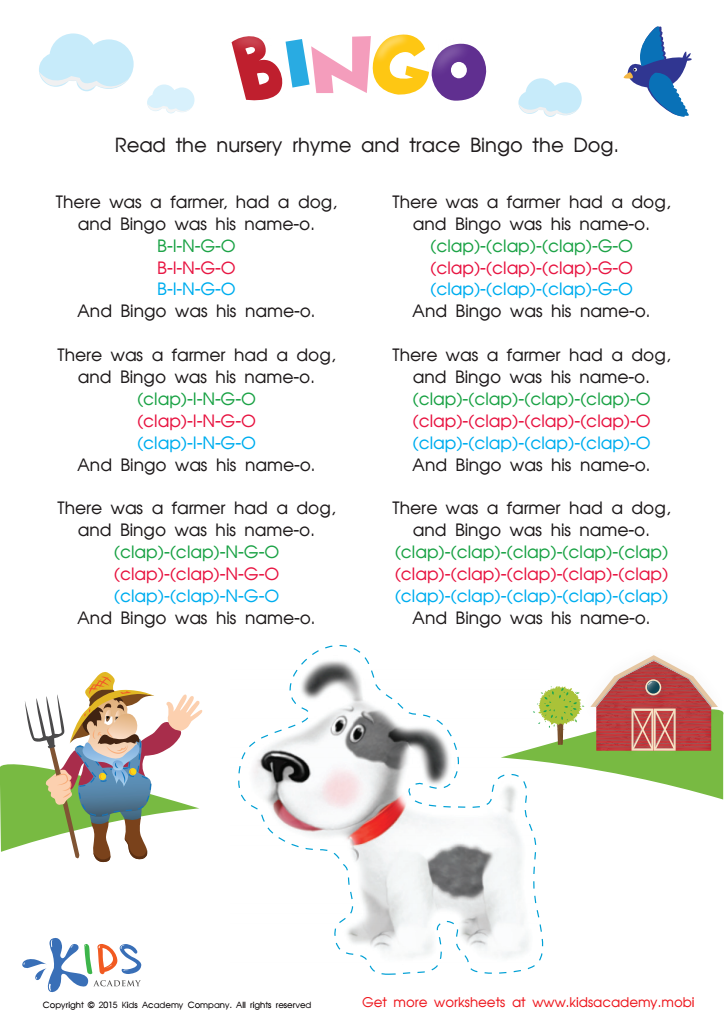

Nursery Rhymes: The Bingo Song Worksheet
Easy nursery rhymes are more than just simple, catchy tunes for children aged 4-8; they are valuable tools for developmental growth. For parents and teachers, incorporating nursery rhymes into daily routines offers multiple benefits. These rhymes help to build language skills, enhancing vocabulary, pronunciation, and comprehension. The repetitive and rhythmic nature of nursery rhymes makes it easier for children to remember and learn new words and concepts.
Moreover, nursery rhymes are foundational to literacy. They introduce basic storytelling elements such as sequence, rhyme, and rhythm, which are critical for reading and writing readiness. Listening skills, another essential component of literary development, are honed as children listen and respond to rhymes.
Emotional and social development are also fostered through nursery rhymes. They often tell simple stories or experiences that children can relate to, helping them to understand and express emotions. Sing-alongs and group recitations promote social interaction, cooperation, and can boost a child’s confidence.
Additionally, these rhymes are accessible and enjoyable, making learning fun and engaging. For teachers, they are an effective way to capture children’s attention. For parents, sharing nursery rhymes can be a bonding experience that enriches the parent-child relationship. Thus, easy nursery rhymes are integral to a well-rounded early childhood education.

 Assign to My Students
Assign to My Students


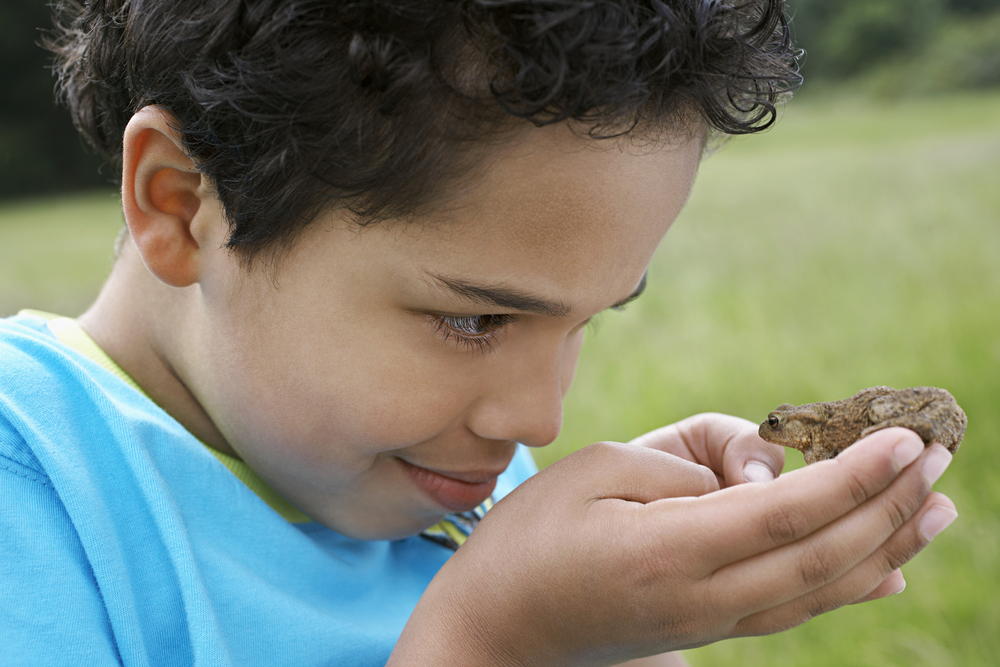


.jpg)


